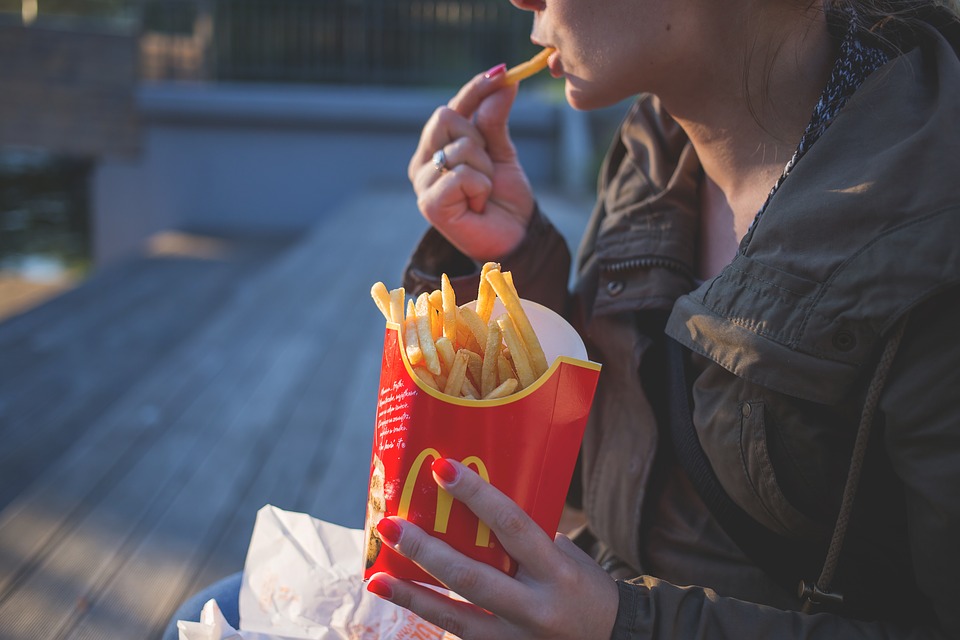Posted on: October 18, 2019
Most of us unconsciously eat food a few times a day. Many eat to satisfy hunger or alleviate stress or boredom. We often choose foods out of force of habit or to satisfy a flavor-craving.
You may not realize the power your food choices have to make or break how good or bad your body and mind feel.
Food provides the biochemical building blocks and electrical current for our bodies and minds. Without certain nutrients, we can’t function.
For hundreds of years, many sailors died on long sea voyages due to scurvy, a mysterious disease at the time. Victims bruised easily and developed infections, swollen gums, and their teeth fell out. The best “scientific” minds of the day said the cause was poisonous vapors rising from the sea. In fact, it was actually a nutritional deficiency of Vitamin C.
Vitamin C was the first vitamin isolated and synthesized in a lab almost 100 years ago. Early nutrition researchers learned how to remedy dietary deficiencies of the body such as scurvy and beriberi – a deficiency of B vitamins.
Since then, exciting research has explored even more links to nutrition and its effect on both physical and mental health.
The need for nutritional information is urgent. Depression alone affects millions worldwide. If optimal nutrition can relieve this burden (and studies are promising), this research is vital.
But it’s not quite as simple as the early health advocates claimed: “You are what you eat.”

Enjoying this article?
Subscribe + don’t miss the next one!
We’ll also send you our e-book: Live Younger 25 Ways to Age Gracefully—Starting Now.
It’s More Than What Meets the Fork
Diet plays a huge role in the health of both mind and body. Yet many other factors influence how (and if) that food is utilized by the body.

For example, are you under stress when you eat? Then you probably are not secreting enough digestive enzymes to break down your food, which could eventually lead to leaky gut and allergic reactions. Allergies, leaky gut, and environmental biotoxins adversely affect your digestion, nutrient absorption, and ultimately, your brain. Out-of-whack minerals (for example, copper and zinc imbalances can cause cognitive problems) and hormonal imbalances also affect your body and mind. All these factors and more affect how your food’s nutritional content is absorbed (or not).
Many diets are popular now (vegan, vegetarian, Paleo, intermittent fasting, etc.). However, that doesn’t mean they are right for your body’s unique needs. I see many patients who eat supposedly “healthy” diets but who still have nutritional deficiencies. For example, I often see anemia (from lack of iron and B vitamins) in vegans.
One rare signal of possible nutritional deficiencies is called pica: the craving to eat odd, seemingly non-nutritive items, like sand, ashes, or chewing on ice. More common in our society is a craving for non-nutritive junk food.
Ironically, someone can be overweight, yet in some ways, starving to death.
Don’s Depression
Overweight and depressed at 39 years old, Don* was always hungry. What concerned him more was that he was always tired – not just a little, but extremely tired. “I’m too young to feel this old,” Don thought.

He was busy, like most people, and ate fast food often. At a friend’s urging, he tried vegetarianism but felt even worse.
Next, he went to a doctor for a physical. His doctor reported that Don was “fine,” his CBC blood tests were normal. Because Don was still exhausted and depressed in spite of his “normal” blood work, he made an appointment to see me.
I assessed his nutritional status. Don was deficient in B12, folate (a B vitamin), and iron. Deficiencies in iron cause fatigue, and inadequate B12 and folate cause extreme fatigue plus neurological disturbances. Anemia is common in women due to their menstruation but is rarely suspected in men.
Many of Don’s health puzzle pieces were connected to his gut, which became imbalanced long before. As a child, he had suffered from numerous ear infections followed by multiple rounds of antibiotics. Unbeknownst to him, he had developed small intestinal bacterial overgrowth (SIBO).
As a vegetarian, he ate more grains. However, his tests showed elevated antibodies to gluten. The gluten in the grains caused an allergic reaction in his body and mind. The result was inflammation, which is linked to depression.
The gastrointestinal system (commonly called the gut) is the so-called “second brain.” The gut’s body/mind connection is linked to both obesity and anorexia.
Enjoying this article? Subscribe + don’t miss the next one!
We’ll also send you our e-book: Live Younger 25 Ways to Age Gracefully—Starting Now.
Know Your Gut Reaction
The makeup of unhealthy microorganisms in the gut can cause anxiety, ravenous hunger, and lack of appetite. The balance of “good” to “bad” microorganisms is highly dependent on what we feed them.
Sugar and junk food can turn your gut microbiota into nasty beasties, and healthy food can make them peaceful and happy. And your gut microorganisms can do the same thing to your moods.

Nutrient-deficient, highly processed “junk food” is not only highly addictive, it’s also pro-inflammatory. Inflammation is clearly linked to almost every disease of body and mind, from arthritis and cardiovascular disease to depression and even schizophrenia.
Just as diets can be pro-inflammatory, they can also be anti-inflammatory, which has shown promise in relieving not only physical symptoms but also depression.
Rebalance Your Gut, Body & Mood
Once Don’s food sensitivities and nutritional deficiencies were identified and corrected, he felt like a new man. When his body had what it needed in the way of nutritional supplements, he was able to easily adjust his diet to one that was right for his body. He lost weight and regained his energy and enthusiasm. Depression became a thing of the past.
Is someone near and dear to you ready to regain their health mentally and physically?
Book an appointment with me by clicking this link.
I enjoy helping people say what Don did: “When I was depressed, I thought I would never feel this good again. I’m so glad I was wrong.”
*Fictional name

